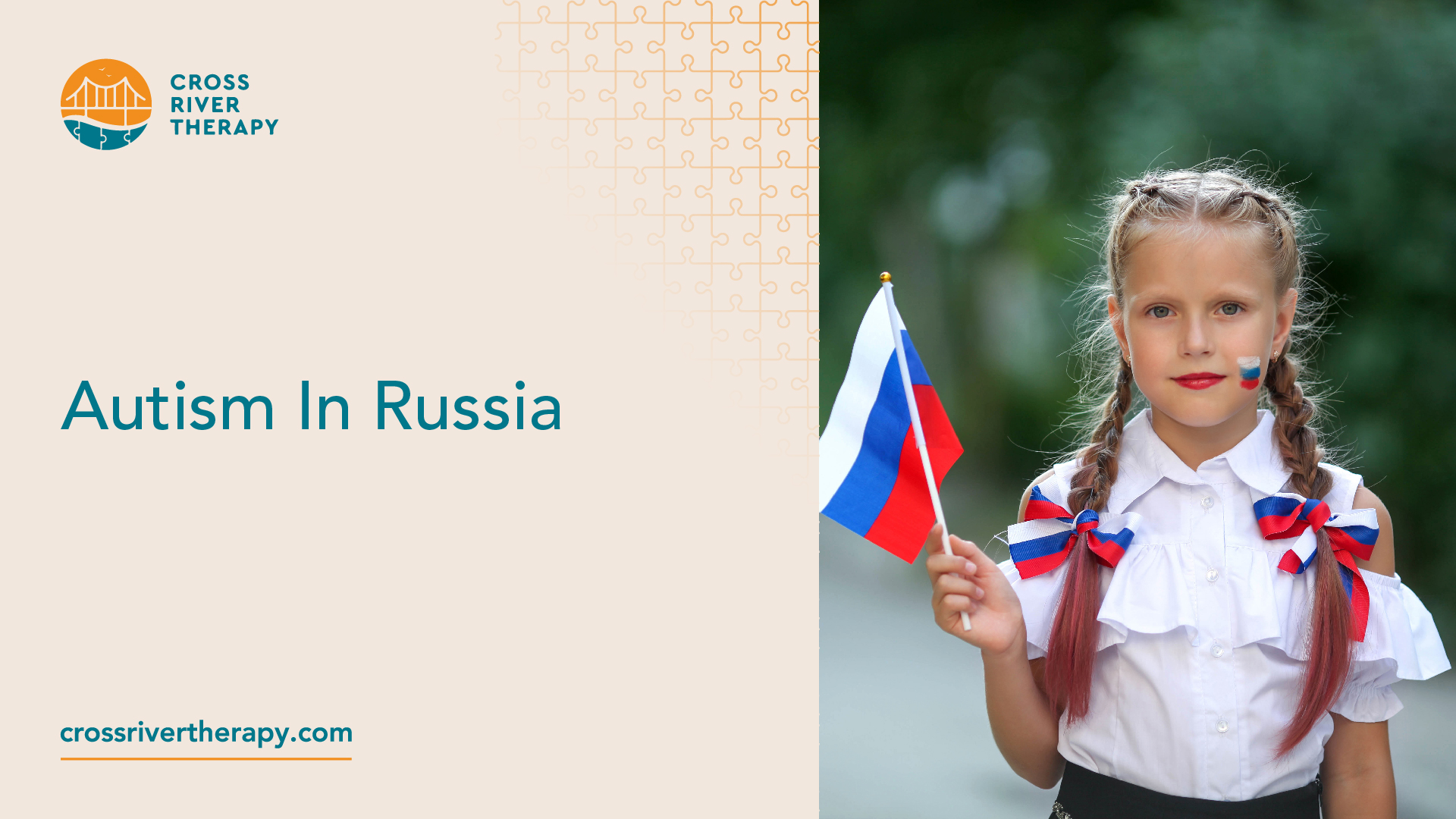Autism In Russia
How is autism diagnosed and treated in Russia?
How Do Clinicians Diagnose Autism in Russia?
Autism in Russia can be diagnosed using the same standards found in other developed countries.
However, in most instances, the disorder won't be found in everyone that seeks help for autism's symptoms. There are few official estimates for the rate of people diagnosed with the disorder, though some place the number of Russians in the country with ASD at 200,000.

Diagnosis in the Russian Federation can be very challenging, with many children and adults struggling in all areas. Some of the areas most impacted by their lack of help include pertinent medical advice, sound medical treatment, and social problems that come along from people, including themselves, not fully understanding the cause of the symptoms they display.
.jpeg)
Boosting awareness of autism in Russia is a process requiring extensive improvement.
It's important to note that autism as a whole doesn't have nearly as identical an understanding as it should, not only in Russia but in most of the world. There have been some improvements made in autism detection in the country, particularly in the last two decades.
Yet Russia remains a place where significant changes are needed in not only the diagnosis of ASD but in its treatment and attitudes given to it by the Russian populace. Some parents that have studied autism and wish to increase its awareness have taken to adopting children on the spectrum.
Prejudice can be very high for autistic people. Many with the disorder go undiagnosed and are sometimes shunned by their families, friends, and the community at large. With such a large segment being unaware of what autism is, or that it even exists, it could be labeled as simply a defect, or incorrectly reduced to a mental disability, which autism isn't.
Care for the autistic, when done properly, has the potential to split families apart from people believing legitimate treatment options to be harmful. In much of Russia, most doctors and medical professionals at the highest echelons of the government and private industries didn't consider autism to be an existing medical diagnosis.
It was, and in many cases, still is misdiagnosed as other conditions, like schizophrenia. According to various sources, much of the population, particularly in areas of the country with poorer education, considers autism to be nothing but symptoms of schizophrenia.
Currently, in the Russian medical community, ASD is widely thought to be something that occurs only in children, whereas adults with the disorder are rarely acknowledged.
Since autism is found more often in men, the majority of organizations seeking to bolster acknowledgment of the disorder focus on men. Unless efforts are raised to include misdiagnosed women, the future improvement could result in a notable discrepancy in women.
Is There a Lack of Awareness of Autism in Russia?
In Russia, there's a serious lack of awareness of autism. Much of the public has no awareness of what the disorder is. This has led many with the disorder to become addicted to numerous pharmaceutical drugs, typically from being misdiagnosed.
Russian society doesn't place autism awareness as of high importance to the Russian people.
.jpeg)
Although some progress is slowly being made, much of the public has little understanding of autism, even while they may know or have people in their family that are autistic.
What Is The Prevalence Of Autism In Russia?
Many figures place the estimate at less than 15 of the population, between 200,000 to 500,000 people. The prevalence of autism in Russia is difficult to estimate, given that many never become diagnosed or undergo proper treatment.
Many pediatricians and physicians don't possess the qualifications to make a diagnosis, especially at the earliest and most formative stages of an autistic person's life. Therefore, doctors are likely to improperly settle for schizophrenia or other mental illnesses.
What is the Standard Treatment for Autism in Russia?
Treatment for autism is poor, especially in regions outside of Moscow and Saint Petersburg.
The most often prescribed treatment is medications, some of which could lead one with autism down a more destructive physical path. Some of the medications may keep a patient heavily sedated, fatigued, or unable to live a normal life on their own. There are a limited number of facilities that can properly care for autistic individual.
Those that do treat children and adolescents often bring them in after they've lived a life of heavy prescription drug use. Since medication isn't as heavily regulated in Russia as it is in other nations, ASD patients may be provided medicine that does little to treat their symptoms, or even make them worse.
For improvements to be widespread across Russia, greater education and understanding of autism are needed, along with easier access to therapy practices, such as Applied Behavior Analysis.
.jpeg)
Encouragement for patients and the support of doctors that do have an understanding of ASD could go a long way in ensuring fewer autistic individual are misdiagnosed. Treatment facilities reach families outside of the major cities and into the smaller, more isolated communities, through telehealth services providing ABA guidelines and more extensive tests before it's diagnosed.
References
- https://assets.researchsquare.com/files/rs-112715/v1/de5419aa-f30c-4818-8487-ff8e070fdcc2.pdf?c=1641836914
- https://www.deepdyve.com/lp/springer-journal/diagnosis-and-management-of-autism-spectrum-disorders-in-russia-ZK3DMY9ec9?key=springer
- https://consortium-psy.com/jour/article/view/211
- https://www.spectrumnews.org/opinion/q-and-a/inside-a-summer-camp-for-autistic-children-in-russia/
- https://www.opendemocracy.net/en/odr/everyones-different-living-with-autism-in-russia/
- https://www.rbth.com/society/2013/04/09/theyre_right_here_autism_in_russia_23669
- https://realnoevremya.com/articles/5232-living-with-autism-in-russia-the-prospects



